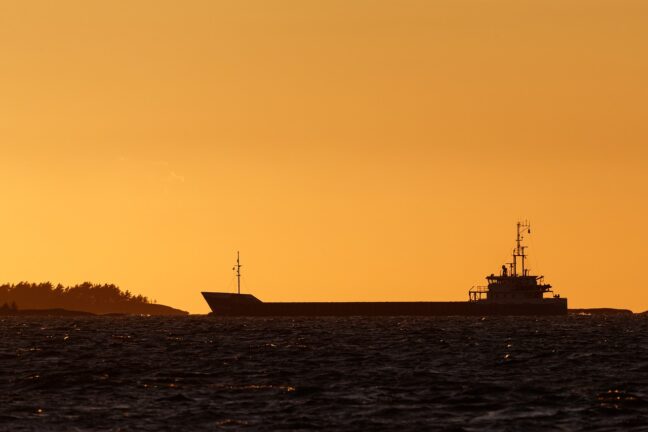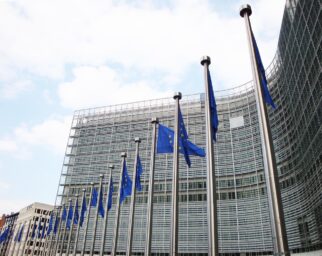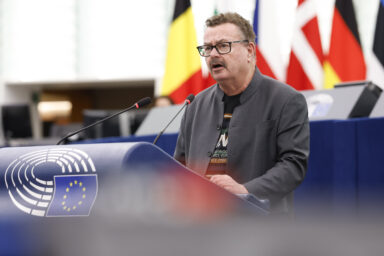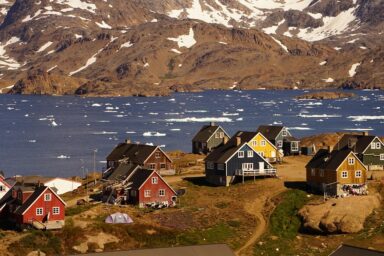The EU’s 19th sanctions package against Russia addressed growing maritime threats, including GPS jamming and the use of so-called shadow fleets—vessels transporting Russian oil and gas illicitly, often via third countries to evade detection and enforcement. A 24 September 2025 workshop hosted by the European Parliament’s TRAN Committee on security challenges in the Baltic Sea region brought these issues to the fore.
Held against the backdrop of heightened geopolitical tensions—particularly Russia’s ongoing war against Ukraine—the meeting brought together experts to examine two pressing risks: the increasing presence of Russian shadow fleets in European waters and widespread GPS interference.
Chairing the meeting, MEP Virginijus Sinkevičius highlighted the stakes: “Our region of the continent is facing serious security challenges affecting transport flows.”
Obscure vessel tracking
Discussions highlighted how sanctions on Russian petroleum exports have triggered evasive shipping tactics, including the use of opaque vessel networks—known as shadow fleets—and increased GPS interference to obscure vessel tracking. Case studies from Finland, Estonia, and Poland illustrated the practical challenges in detecting, deterring, and responding to these threats. Key speakers included Laura Solanko from the Bank of Finland Institute for Emerging Economies and Jaroslaw Cydejko, Assistant Professor at Gdynia Maritime University in Poland.
Our aim is to limit the flow of oil revenues into Russia’s federal budget. Oil revenues currently make up about one quarter of total revenues and are the easiest to affect from outside the country. – Laura Solanko, Senior advisor from the Bank of Finland Institute for Emerging Economies
Other speakers included Jaak Viilipus, CEO of the Nordic Marine Advisory Group, and Christian Bueger, Professor at the University of Copenhagen and Research Fellow at the United Nations Institute for Disarmament Research. Each had 14 minutes.
Laura Solanko described the EU’s sanctions as a concentrated effort to reduce Russia’s ability to fund its war against Ukraine. She highlighted three key elements of the EU strategy: the oil embargo, the G7 price cap, and additional financial market restrictions. She explained the importance of oil and gas to the Russian economy:
You might be interested
“Our aim is to limit the flow of oil revenues into Russia’s federal budget. Oil revenues currently make up about one quarter of total revenues and are the easiest to affect from outside the country.”
Shadow vessels far from safe—or secure
She noted that Russia now received $12 less for every barrel it exports, thanks to sanctions which she described as a significant achievement. However, she added that the price cap has been less effective than hoped, as Russian exporters have found new customers and alternative transport methods, including the shadow fleet—vessels not owned or insured by G7 countries. While some are insured and in good condition, “not all are safe or secure.”
The Baltic Sea, a shallow sea with an average depth of about 50 metres (compared to 1,500 in the Mediterranean), is now a major hub. “Around 70 per cent of Russia’s crude oil transported through the Baltic Sea is now handled by shadow fleets,” she explained.
More clarity
If the aim is to limit Russia’s war efforts, authorities must do more to clamp down on third-party enablers. That is one reason why the 19th package added more vessels and related measures to the blocked list.
“This has forced Russian operators to turn into increasingly opaque networks and to turn to ships of dubious quality.”
She added that the average age of ships used in the Baltic Sea had increased, that crews manning questionable vessels with missing inspections, falsified insurance, inexperienced crews, all leading to the rising danger of an eventual ecological disaster, if not tackled head on.
“This is something that did not exist in the Baltic Sea,” she said, “prior to Russia’s invasion of Ukraine.”
The other three speakers focused on Russia’s current maritime operations and more granular details about how they are undermining existing controls and security. Prof. Christian Bueger outlined the broader challenge posed by shadow fleets:
“If you had asked any maritime professional five years ago what a shadow fleet was, they would have referred to a vessel turning off its automatic identification system—going dark, literally—or to vessels engaged in some form of crime.”
More work needed
Professor Bueger said the term has remained vague since 2023, now referring largely to substandard shipping practices not always directly tied to sanctions evasion. “My clear argument here is that when we are looking at the shadow fleet, we are looking at three different problems,” he explained. These include not only limiting Russia’s war effort but also addressing the fleet as an environmental and security threat—one not currently matched by strong maritime laws, surveillance capacity, or responses to grey-area activities.
With threats to transport security growing more complex, workshops like this one underscore the urgent need for European institutions and Member States to act decisively to safeguard the integrity of maritime routes in the Baltic Sea and beyond. As enforcement gaps become clear and new tactics emerge, European institutions and Member States must sustain coordination, improve data sharing, and enforce stricter oversight of high-risk vessels to maintain the impact of existing sanctions. Key priorities include enhancing maritime situational awareness, investing in satellite and cyber resilience, and updating regulatory frameworks to address the new forms of deception outlined in the workshop.











